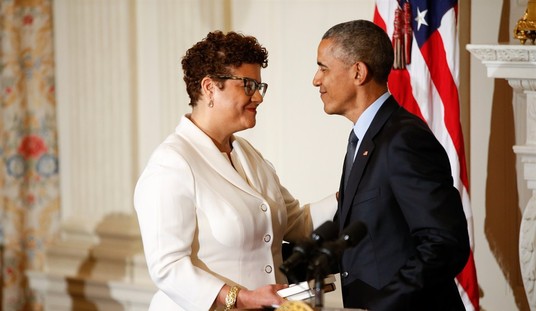This article on Yale’s website was published almost two weeks ago. The author of the article, Cydney Dupree, is one of two researchers who started out looking at how white presidential candidates talk when they are addressing a mostly black audience compared to when they are speaking to a mostly white audience. Dupree, who is black, and co-researcher Susan Fiske of Princeton found the candidates were less likely to use words that expressed competence and more likely to use words that expressed warmth when talking to a minority audience:
The team found that Democratic candidates used fewer competence-related words in speeches delivered to mostly minority audiences than they did in speeches delivered to mostly white audiences. The difference wasn’t statistically significant in speeches by Republican candidates, though “it was harder to find speeches from Republicans delivered to minority audiences,” Dupree notes. There was no difference in Democrats’ or Republicans’ usage of words related to warmth. “It was really surprising to see that for nearly three decades, Democratic presidential candidates have been engaging in this predicted behavior.”
But that was just the beginning. Next, the researchers started designing a new experiment which would attempt to discover if the same pattern held true for ordinary people, i.e. non-politicians who were simply talking to another individual. Here’s what they came up with:
They designed a series of experiments in which white participants were asked to respond to a hypothetical or presumed-real interaction partner. For half of these participants, their partner was given a stereotypically white name (such as “Emily”); for the other half, their partner was given a stereotypically black name (such as “Lakisha”). Participants were asked to select from a list of words for an email to their partner. For some studies, this email was for a work-related task; for others, this email was simply to introduce themselves. Each word had been previously scored on how warm or competent it appears. The word “sad,” for example, scored low for both warmth and competence. “Melancholy,” on the other hand, scored high for competence and low on warmth.
And what they found is that white liberals were less likely to stress competence when talking with someone they believed was black. Conservative white participants did not show this same “competence downshift” when talking to someone they believed was black.
The researchers found that liberal individuals were less likely to use words that would make them appear highly competent when the person they were addressing was presumed to be black rather than white. No significant differences were seen in the word selection of conservatives based on the presumed race of their partner. “It was kind of an unpleasant surprise to see this subtle but persistent effect,” Dupree says. “Even if it’s ultimately well-intentioned, it could be seen as patronizing.”
Dupree and Fiske suspect that the behavior stems from a liberal person’s desire to connect with other races. One possible reason for the “competence downshift,” as the authors describe it, is that, regardless of race, people tend to downplay their competence when they want to appear likeable and friendly. But it’s also possible that “this is happening because people are using common stereotypes in an effort to get along,” Dupree says.
It could be seen as patronizing? That seems incredibly generous. The outcome the authors have described definitely sounds patronizing, even if you assume it’s well-meaning in intent. But the underlying question is whether people doing this are even aware of it.
In a podcast discussing the research, Dupree said that when white liberals are asked if they are doing this intentionally as a strategy they deny it. So she sees this as an unconscious strategy which could be the result of relying on implicit stereotypes. However, she adds that the work necessary to test that explanation has yet to be done and there are other possible explanations.
The next step in Dupree’s work will be to see whether or not the competence downshift strategy actually works, i.e. do black Americans approached in this way find it endearing or demeaning? She also wants to see if black Americans have any similar strategies when dealing with people who are white. It’ll be interesting to see what she comes up with.








Join the conversation as a VIP Member